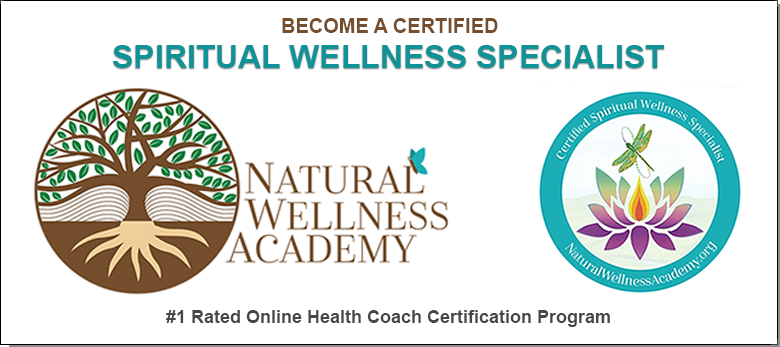
The journey to becoming a spiritual wellness coach is profoundly transformative, beginning with a deep commitment to self-healing. As you heal and grow, you gain the wisdom and empathy needed to guide others on their own spiritual paths. Here we explore the essential steps from personal healing to establishing a successful coaching practice, highlighting the importance of self-awareness, skill development, and the creation of a nurturing environment for clients. Whether you are at the start of your journey or seeking to enhance your practice, this guide provides valuable insights and practical advice for making a meaningful impact as a spiritual wellness coach.
Contents
- Introduction to Spiritual Wellness and Self-Healing
- Understanding Spiritual Wellness Coaching
- The Self-Healing Journey
- Transitioning from Self-Healing to Helping Others
- References
Introduction to Spiritual Wellness and Self-Healing
The journey to becoming a spiritual wellness coach is both transformative and rewarding. By focusing on self-healing, you can develop the empathy and skills needed to guide others on their spiritual paths.
Overview of Spiritual Wellness Coaching
Spiritual wellness coaching is a growing field that focuses on helping individuals achieve a sense of balance, peace, and purpose in their lives. It involves guiding clients through personal challenges, helping them develop a deeper understanding of their spiritual beliefs, and supporting them in making positive changes. This type of coaching is holistic, addressing the mind, body, and spirit to foster overall well-being.
Importance of Self-Healing in Spiritual Wellness
Before one can effectively help others on their spiritual journey, it’s crucial to undertake their own path of self-healing. This process involves introspection, emotional healing, and spiritual growth. By working through personal issues and achieving a state of inner peace, future coaches gain the empathy and authenticity needed to support their clients. Self-healing is the foundation upon which effective spiritual wellness coaching is built.
Understanding Spiritual Wellness Coaching
To become an effective spiritual wellness coach, it is essential to have a thorough understanding of what the role entails.
Definition and Scope
Spiritual wellness coaching is a holistic practice that guides individuals towards achieving harmony between their mind, body, and spirit. It encompasses a wide range of techniques and approaches tailored to each client’s unique needs. Coaches work with clients to explore their spiritual beliefs, overcome personal challenges, and develop strategies for leading a more fulfilling life.
Key Principles and Practices
The core principles of spiritual wellness coaching revolve around empathy, compassion, and authenticity. Coaches must create a safe and supportive environment for clients to express themselves and explore their spiritual paths. Common practices in spiritual wellness coaching include meditation, mindfulness, energy healing, and spiritual counseling. These practices help clients connect with their inner selves and find clarity and purpose [1].
Benefits of Spiritual Wellness Coaching
Spiritual wellness coaching offers numerous benefits, both for clients and coaches. For clients, it provides a path to self-discovery, emotional healing, and spiritual growth. They learn to manage stress, improve their relationships, and achieve a sense of peace and fulfillment. For coaches, it is a rewarding career that allows them to make a positive impact on others’ lives while continuing their own spiritual journey. The coaching process fosters personal growth, deepens empathy, and enhances one’s ability to live a balanced and purposeful life.

The Self-Healing Journey
The self-healing journey is a vital part of becoming a spiritual wellness coach. It involves addressing personal challenges, fostering emotional and spiritual growth, and developing the tools necessary to guide others.
Importance of Self-Healing for Coaches
Before helping others, a spiritual wellness coach must undergo their own healing process. This personal journey is essential for several reasons.
Personal Transformation
Through self-healing, coaches experience profound personal transformation. This journey helps them understand their own spiritual path, identify and heal emotional wounds, and achieve a state of inner peace. This transformation is crucial for building the empathy and insight needed to guide clients effectively.
Building Authenticity and Empathy
A coach who has walked the path of self-healing brings authenticity and empathy to their practice. Clients are more likely to trust and connect with a coach who has experienced similar challenges and growth. This authenticity fosters a deeper, more meaningful coach-client relationship.
Steps in the Self-Healing Process
Self-healing is a multi-faceted process that involves several key steps. Each step is designed to help individuals connect with their inner selves and promote holistic well-being.
Self-Assessment and Reflection
The first step in self-healing is self-assessment and reflection. This involves taking an honest look at one’s life, identifying areas that need healing, and reflecting on past experiences. Journaling and meditation are effective tools for this step, helping individuals gain clarity and insight [2].
Identifying and Addressing Emotional Blocks
After self-assessment, the next step is identifying and addressing emotional blocks. These blocks can manifest as unresolved trauma, negative beliefs, or suppressed emotions. Techniques such as energy healing, counseling, and mindfulness practices can help individuals release these blocks and promote emotional healing.
Practicing Mindfulness and Meditation
Mindfulness and meditation are powerful practices in the self-healing journey. They help individuals stay present, reduce stress, and cultivate a deeper connection with their inner selves. Regular practice of mindfulness and meditation enhances overall well-being and supports the healing process.
Tools and Techniques for Self-Healing
There are various tools and techniques available to support self-healing. These methods can be integrated into daily routines to promote ongoing growth and healing.
Journaling
Journaling is a therapeutic practice that allows individuals to express their thoughts and emotions freely. It helps in processing experiences, gaining insights, and setting intentions for healing. Regular journaling can be a powerful tool for self-discovery and emotional release.
Energy Healing Practices
Energy healing practices, such as Reiki, chakra balancing, and acupuncture, focus on restoring the body’s natural energy flow. These practices can help release emotional blocks, reduce stress, and promote overall well-being. Incorporating energy healing into the self-healing journey can accelerate the process of emotional and spiritual growth [3].
Spiritual Retreats and Workshops
Attending spiritual retreats and workshops provides an immersive environment for self-healing. These settings offer a break from daily routines and allow individuals to focus entirely on their spiritual growth. Retreats and workshops often include guided meditations, group discussions, and specialized healing sessions, all designed to support the self-healing journey.
Transitioning from Self-Healing to Helping Others
After completing your self-healing journey, the next step is to transition into a role where you can assist others in their spiritual growth. This process involves developing key skills, gaining certifications, and building a practice that reflects your authentic self.
The Role of Empathy and Understanding
Empathy and understanding are fundamental qualities for a successful spiritual wellness coach. These attributes enable you to connect deeply with your clients, offering them the support and guidance they need.
Building Trust with Clients
Establishing trust is the cornerstone of any coaching relationship. Clients need to feel safe and valued to open up about their spiritual journeys. Demonstrating genuine empathy, active listening, and consistent support helps build this trust, creating a strong foundation for effective coaching.
Creating a Safe Space for Healing
A safe and nurturing environment is essential for clients to feel comfortable sharing their experiences. This space allows them to explore their spirituality without judgment, fostering a sense of security and openness. As a coach, your role is to maintain confidentiality, respect boundaries, and provide a compassionate presence [4].
Developing Coaching Skills
To effectively help others, it is crucial to develop a set of coaching skills that complement your spiritual knowledge. These skills enhance your ability to guide clients through their healing processes.
Active Listening
Active listening is a critical skill for spiritual wellness coaches. It involves fully concentrating on the client, understanding their message, and responding thoughtfully. This practice shows clients that you are genuinely interested in their well-being and are fully present during sessions.
Effective Communication
Clear and compassionate communication helps convey your insights and guidance to clients. It involves not only speaking effectively but also understanding non-verbal cues. Effective communication ensures that your clients feel heard, understood, and supported throughout their journey.
Goal Setting and Action Planning
Helping clients set realistic goals and develop action plans is a vital part of the coaching process. This involves working collaboratively to identify their aspirations, break them down into manageable steps, and create strategies for achieving them. Goal setting provides clients with a clear direction and a sense of accomplishment as they progress.
Gaining Certification and Credibility
Obtaining certification and building credibility are essential steps in establishing yourself as a professional spiritual wellness coach. These steps not only enhance your skills but also increase your marketability and trustworthiness.
Importance of Certification
Certification demonstrates your commitment to professional standards and continuous learning. It provides clients with confidence in your abilities and ensures that you have the necessary knowledge and skills to guide them effectively. Many clients prefer working with certified coaches, making it a valuable investment in your career.
Recommended Certification Programs
Several reputable programs offer certification in spiritual wellness coaching. These programs typically include comprehensive training in coaching techniques, spiritual practices, and ethical standards. Research and choose a program that aligns with your values and career goals to ensure the best fit for your professional development.
Continuing Education and Professional Development
Continuing education is crucial for staying current with the latest developments in spiritual wellness coaching. Engaging in ongoing professional development through workshops, conferences, and advanced courses helps you refine your skills and expand your knowledge. This commitment to lifelong learning enhances your effectiveness as a coach and keeps you motivated and inspired.
References
[1] How Spiritual Wellness Has Helped Me Heal
[2] How to Heal Yourself and Others
[3] Spiritual Wellness: What Is Your Meaning and Purpose?
[4] Healing is Essential to Liberation

